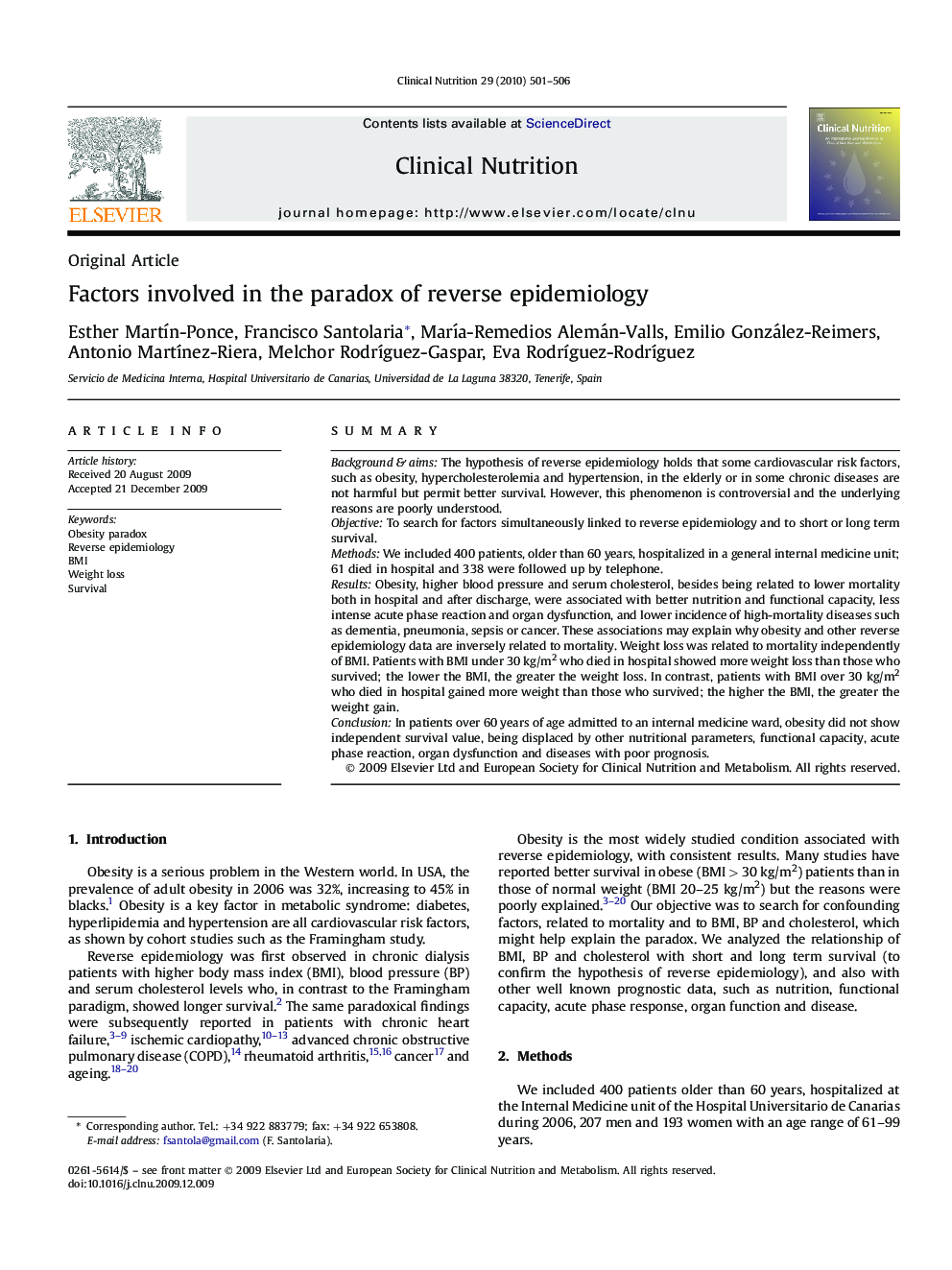| کد مقاله | کد نشریه | سال انتشار | مقاله انگلیسی | نسخه تمام متن |
|---|---|---|---|---|
| 2683211 | 1142622 | 2010 | 6 صفحه PDF | دانلود رایگان |

SummaryBackground & aimsThe hypothesis of reverse epidemiology holds that some cardiovascular risk factors, such as obesity, hypercholesterolemia and hypertension, in the elderly or in some chronic diseases are not harmful but permit better survival. However, this phenomenon is controversial and the underlying reasons are poorly understood.ObjectiveTo search for factors simultaneously linked to reverse epidemiology and to short or long term survival.MethodsWe included 400 patients, older than 60 years, hospitalized in a general internal medicine unit; 61 died in hospital and 338 were followed up by telephone.ResultsObesity, higher blood pressure and serum cholesterol, besides being related to lower mortality both in hospital and after discharge, were associated with better nutrition and functional capacity, less intense acute phase reaction and organ dysfunction, and lower incidence of high-mortality diseases such as dementia, pneumonia, sepsis or cancer. These associations may explain why obesity and other reverse epidemiology data are inversely related to mortality. Weight loss was related to mortality independently of BMI. Patients with BMI under 30 kg/m2 who died in hospital showed more weight loss than those who survived; the lower the BMI, the greater the weight loss. In contrast, patients with BMI over 30 kg/m2 who died in hospital gained more weight than those who survived; the higher the BMI, the greater the weight gain.ConclusionIn patients over 60 years of age admitted to an internal medicine ward, obesity did not show independent survival value, being displaced by other nutritional parameters, functional capacity, acute phase reaction, organ dysfunction and diseases with poor prognosis.
Journal: Clinical Nutrition - Volume 29, Issue 4, August 2010, Pages 501–506